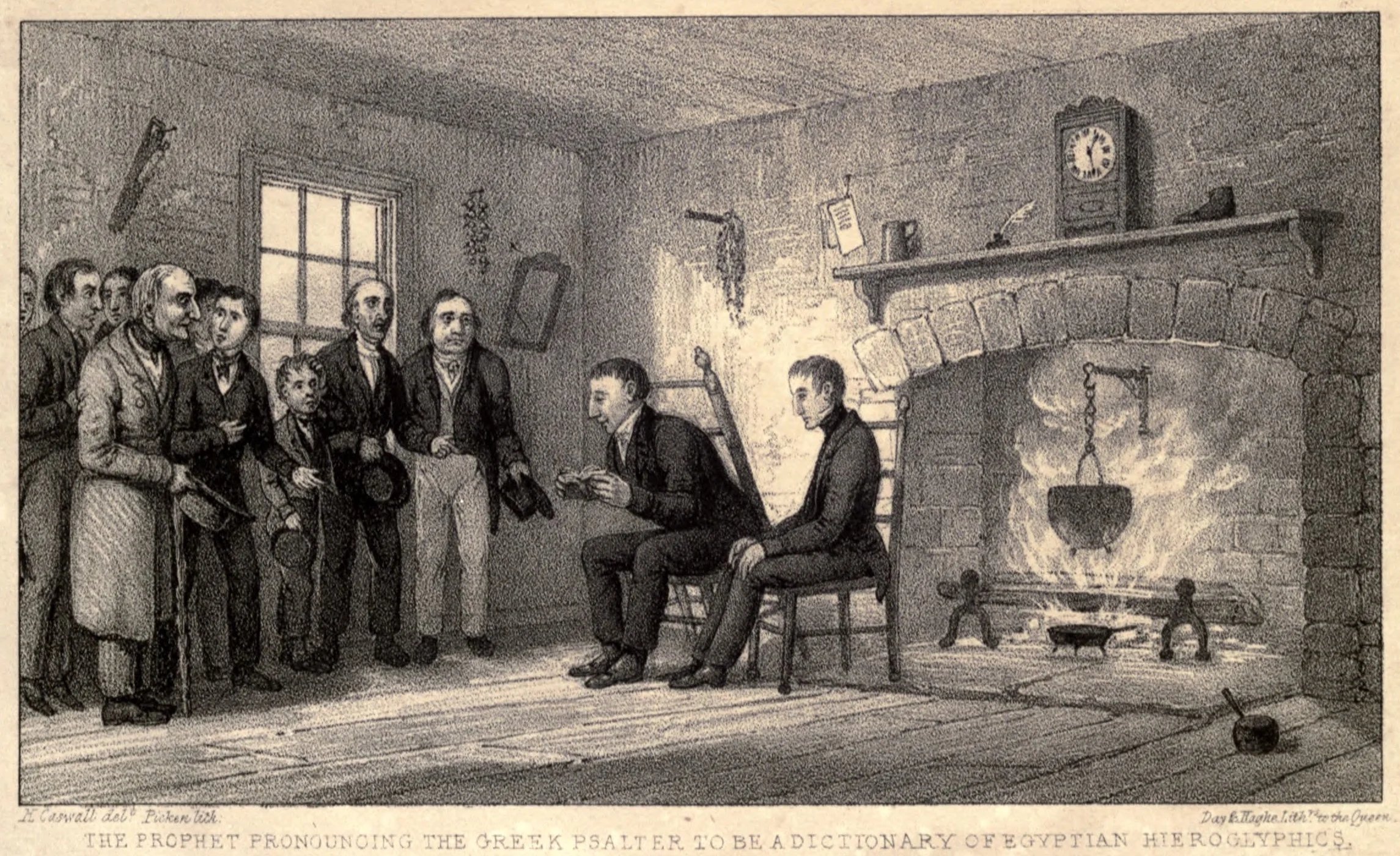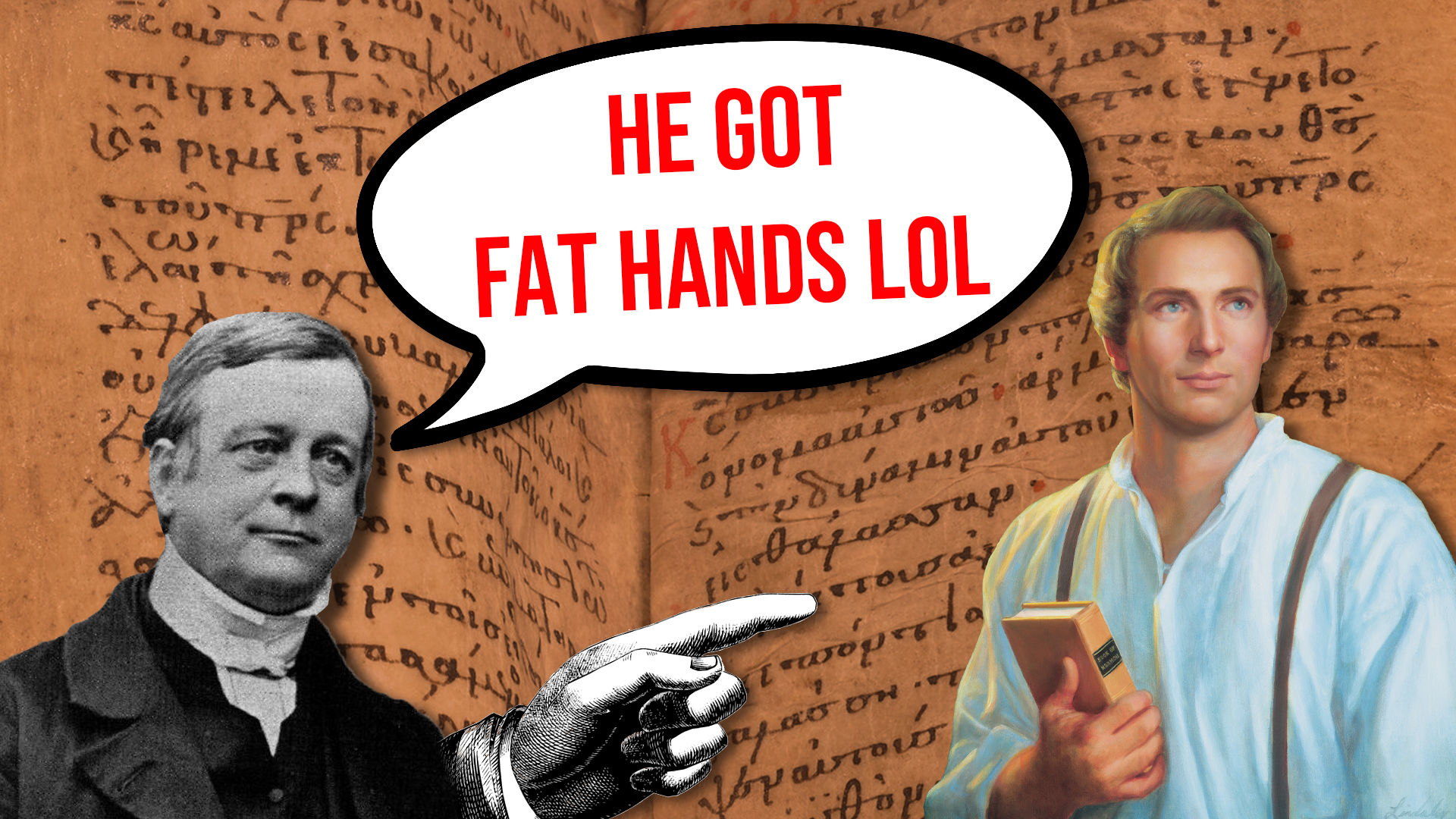Ever had someone hand you a book in a foreign language and expect you to identify or translate it on the spot like you were Indiana Jones? Our researchers have—and, allegedly, so did Joseph Smith.
The story goes like this: an English clergyman named Henry Caswall visited Nauvoo with a medieval Greek manuscript of the Psalms (a "Greek Psalter") and supposedly tricked Joseph into misidentifying it as "a dictionary of Egyptian Hieroglyphics." According to Caswall, this proved that Joseph couldn't possibly translate ancient languages.
The Visitor With an Agenda
Of course, Caswall wasn't exactly an unbiased observer dropping by for a friendly chat. He was an Anglican priest who had already made up his mind about the Saints. Before he visited Nauvoo to meet them, Caswall wrote that the Church was "one of the grossest impostures ever palmed on the credulity of man" and described the Saints as "fanatical" and suffering from a "delusion."
When he published his account of the meeting (which he did repeatedly between 1842 and 1852), he portrayed Joseph as speaking with an exaggerated rural accent and described Nauvoo in the least flattering terms possible. Caswall wrote that Joseph was "a coarse, plebeian person" who looked like a "mixture of the knave and the clown." He also called Joseph's hands "large and fat."
What Actually Happened?
It's not entirely clear. There is evidence that Caswall was in Nauvoo at the time with the Greek Psalter, but the accounts of what actually happened contradict each other.
For decades, the earliest known account came from Henry Caswall’s book, The City of the Mormons; or, Three Days at Nauvoo, published in the summer of 1842. This account is where we get the story we started with.

A second account published in May 21, 1842, just one month after Caswell visited Nauvoo, was uncovered in 2024. This article mentions speaking with "a highly intelligent gentleman" (very likely Caswall) who claimed that he "showed Smith a Greek Psalter, who pronounced it a valuable Egyptian manuscript." It also uses similar anti-Mormon language as Caswell's later book, stating that their "friend" said the Saints were "governed by a military despotism" and their preachers were "active with 'a method in their madness.'"
John Taylor, who was present during Caswall's visit, offered a different version of the events in two separate accounts. According to Taylor, Joseph never claimed the manuscript was Egyptian at all. In 1843, Taylor explained that Caswall brought an old manuscript, pretended to be ignorant of its contents, and asked Joseph to translate it. According to Taylor, Joseph had "a little conversation with him and treated him with civility" but had declined to do anything with the document because Caswall seemed "very much afraid of his document."
Taylor's second account from 1850 adds more details. He mentions seeing Caswall in the Nauvoo printing office with the manuscript, and according to the account, Taylor himself told Caswall it was a Greek manuscript.
Could Joseph Have Known Greek?
Here's an important detail that's often overlooked: Joseph Smith had actually been studying Greek before this encounter. Journal entries from 1835—seven years earlier—show that Joseph owned a Greek lexicon and was studying the language.
By 1842, Joseph had been working with ancient languages for years. He'd published the Book of Mormon, was studying Hebrew, and had been working with Egyptian papyri since 1835. It's questionable whether he would have mistaken a Greek text for an Egyptian one.
Where are We Now?
Ultimately, the incident remains a contested episode in Church history. Caswall claimed Joseph misidentified his Greek manuscript as Egyptian, while John Taylor insisted that Joseph never made such a claim and that Taylor himself correctly identified the manuscript as Greek.
What we do know is that Caswall had clear anti-Mormon motivations for his visit, that he shared his story with sympathetic publications almost immediately, and that Joseph had been studying Greek for several years before this encounter. We also know that Taylor was present as an eyewitness and offered detailed rebuttals to Caswall's claims.
Want to learn more and examine all the primary sources? Check out the Mormonr Q&A "Joseph Smith and the Greek Psalter." Or sign up for our newsletter to receive updates on the latest blog posts, Q&As, and Mormonr projects.


